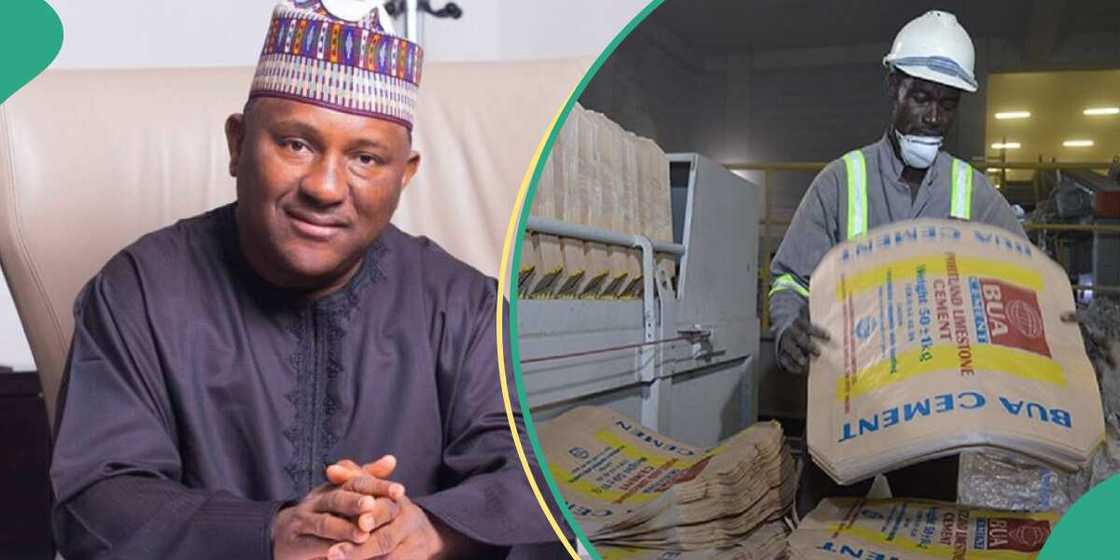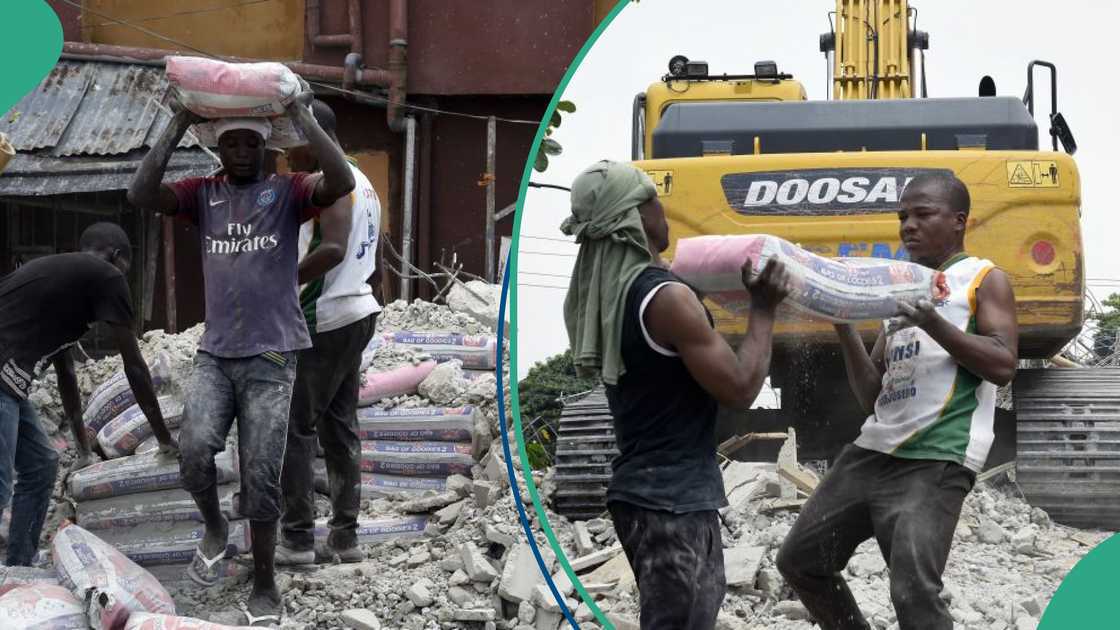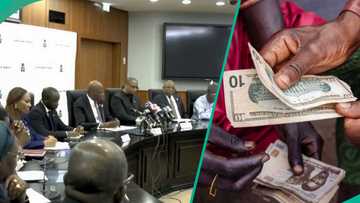Cement Prices Set to Fall as Naira Strengthens, BUA Chairman Predicts Cost Relief
- BUA Cement chairman Abdul Samad Rabiu has assured Nigerians that cement prices will drop as the naira continues to stabilise
- Rabiu explained that current high prices are due to past exchange rate spikes that significantly raised production and import costs
- He also highlighted the company's ongoing expansion plans, projected increased production capacity and strong financial performance ahead of 2027
Legit.ng journalist Victor Enengedi has over a decade's experience covering Energy, MSMEs, Technology, Banking and the Economy.
Abdul Samad Rabiu, Chairman of BUA Cement Plc, has given Nigerians hope that the price of cement will decline as the naira strengthens against the US dollar.

Source: Getty Images
Speaking to journalists after the company’s Annual General Meeting (AGM) held in Abuja, Rabiu attributed the current high prices to fluctuations in the foreign exchange market, which have significantly impacted production costs.
According to The Sun, Rabiu clarified that while prices may seem high, they are a reflection of broader economic conditions.
Rabiu said:
“At N10,000 per bag, I do not think the price is high, considering the exchange rate moved from N300 to over N1,000 to the dollar. Even when it was N300, cement was N4,000 to N5,000. So if you look at it, this is not exploitation.”
Rabiu added that BUA had undertaken major investments when the dollar was much cheaper, but by the time these projects were completed, the naira had depreciated substantially, at one point, reaching nearly N2,000 to the dollar.
According to him, this drastic change affected capital costs, import expenses, and energy needs, making price adjustments necessary for sustainability.
Expansion plans, forex market reforms offer hope
Rabiu expressed optimism that ongoing reforms in Nigeria’s foreign exchange market, combined with BUA’s operational improvements, will help ease cement prices in the near future.
He also shared his positive outlook on the naira’s trajectory, saying he expects the exchange rate to stabilise between N1,000 and N1,300 per dollar.
He said:
“So, the prices you are seeing now are real prices, not anticipation prices. Things are getting better. At one point, the dollar hit N2,000, but now it’s around N1,500. And I’m optimistic that it will get to N1,000 to N1,300, or even lower. When that happens, cement prices will come down too."
On the company’s growth strategy, Rabiu revealed that BUA Cement is nearing completion of a new production line with a capacity of 3 million tonnes.
Scheduled to be operational by early 2027, the expansion will increase BUA’s total annual output to approximately 20 million tonnes.
Also, he disclosed that BUA Cement recorded a profit of N81 billion after tax in the first quarter of 2025, with projections suggesting it could close the year with N250 billion in profits if the current pace continues.

Source: Getty Images
Rabiu emphasised that these earnings are essential for sustaining operations, meeting payroll, and delivering returns to investors.
He concluded by stating that further steps are being taken to reduce production costs and minimise the company’s environmental impact through new energy initiatives.
BUA exposes those behind high cement prices
In related news, Legit.ng reported that Abdul Samad Rabiu, the chairman of BUA Cement, spoke on those behind the rising cement price in Nigeria.
Mr Rabiu disclosed that his company had crashed the price of a bag of cement to N3,500 and had sold over a million tons of cement to dealers at that rate.
He claimed that dealers thwarted the pricing by exploiting the situation and selling the same product at inflated prices.
Source: Legit.ng





